Perhaps it is a generalization, but it seems to me that in Peru parents routinely bring their children to work with them. Maybe not in every part of the country but in many places it happens more often than not. Children spend the whole day with their parents at work! Whether in the streets, restaurants or in the markets I meet mothers with babies on their backs (in the famous mantas) or their children running around playing. In this respect, Andean children perfectly understand what it is to work. From the very beginning, as soon as they are able, they are helping their parents in the workplace.
For some perhaps it is not surprising, but my heart bleeds when I see it. Children should not be tangled up in the sidewalks, hallways, etc. In general, I don’t think they should stay with their mothers all day at work. Where is a place to relax, learn, and play with other children? Unfortunately, in Peru the reality is different than the one I know from my home in Poland. In Peru, at least in some parts, and certainly in the Andes, a lot of mothers do not leave babies even for a moment. They remain on their mother’s backs during all day or somewhere in the corner, or for example in a wheelbarrow – as you can see in the picture below.
This woman sells sugarcane (Caña de azúcar), which is very popular in Peru. She does not have anyone who can stay with the child, so she simply takes her baby to work with her. No one here is surprised of this situation, however, I am somewhat surprised. It makes me hurt because no matter what parents do should not carry children to their jobs. There are exceptions yes, but not as an everyday routine and custom. On the other hand I try to understand the whole culture concept and the situation in Peru, but it does not means that I like it.
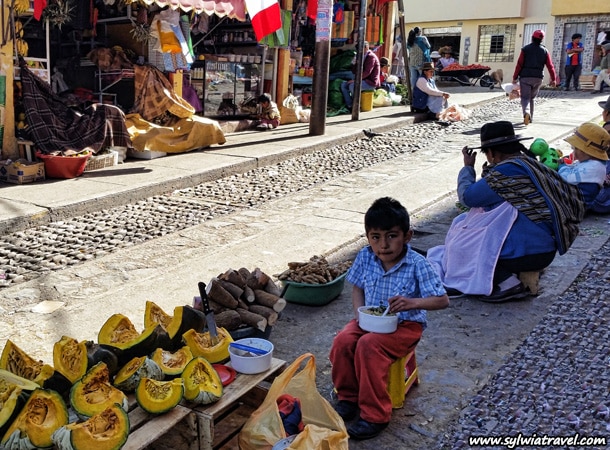
A young boy helping to sell squashes in the market near San Pedro Mercado in Cusco and a mother with a baby on her back
In the picture below you can see a woman selling Peruvian lemon. On her back you can see a colorful material called manta (more about mantas you can read here and here). It doesn’t look strange but inside it there is a baby, sleeping soundly. Maybe the baby is comfortable, but for the mother that’s not the case. Generally, carrying children in mantas is much more convenient than carrying them in their arms but imagine that you are at work all day doing your duties and in addition you have to wear your child on your back the whole time. I wonder how long the backs of these mothers will be able to hold in this state of affairs. It is one thing is to use the manta for a short period of time but another thing to use it every day for many hours.
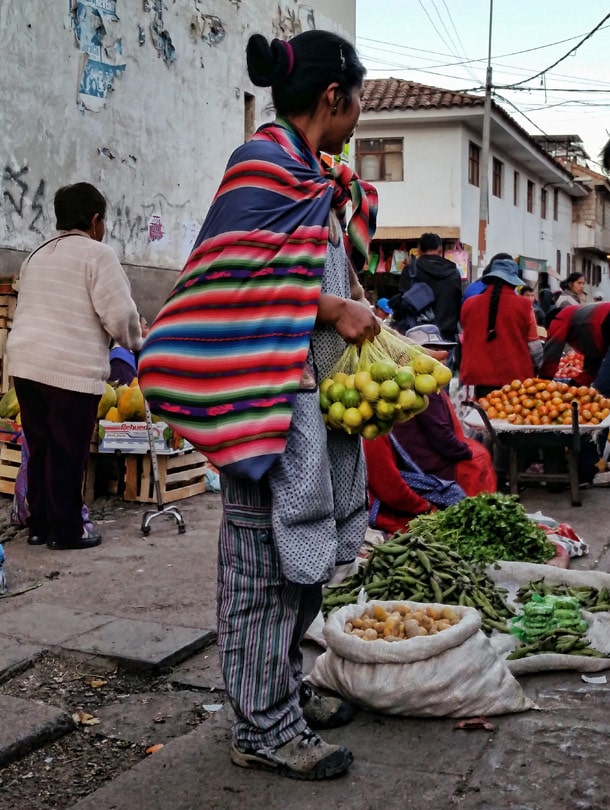
On the photo below another woman, another story but with one common issue-her child is on her back at work.
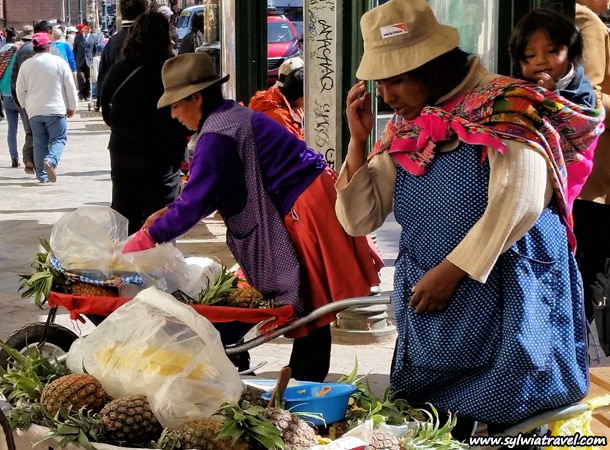
These are not unique cases. Among the Andean population it is fairly common behavior, not the exception.
Of course, as I pointed out in the introduction, this entry is a kind of generalization. However, a generalization so common that I decided to write my opinion on the matter. It still remains difficult for me to accept this aspect of Peruvian culture and life. However, I hope that there will come a time that babies will have better things to do than spend whole days with their parents at work! If you will decide travel to Peru and walk around in the streets of Cusco for example, such a views will be quite common.
On the photo below, a mother with a toddler selling cds. As you can see the girl in hat is no longer the baby, so you can imagine what it’s like to stand up all day with this kind of weight on your back.
But there is something that surprises me in a positive way. All the women who go to their jobs with children, who carry babies for many hours per day, do not complain; they are not sad or angry. For me they are extremely strong women!

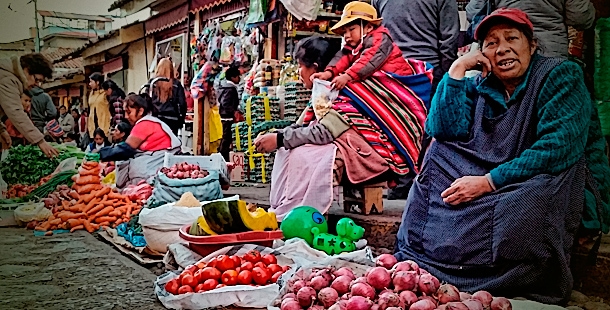
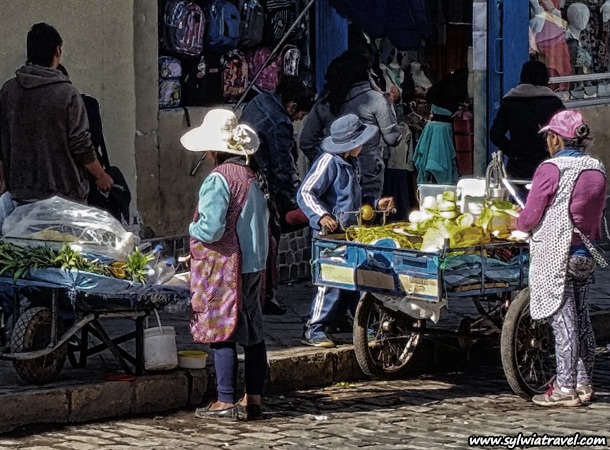
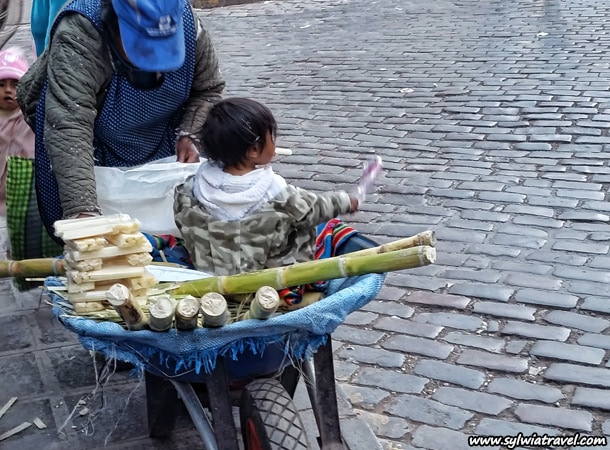
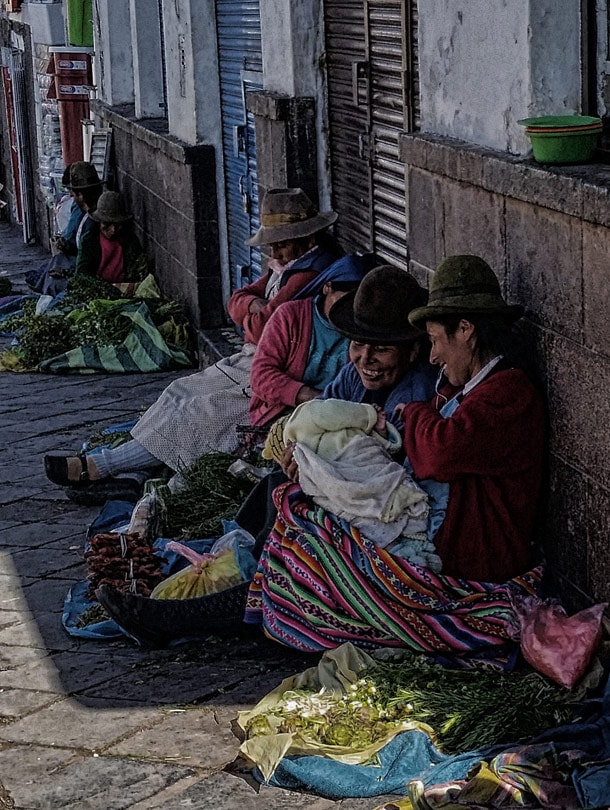
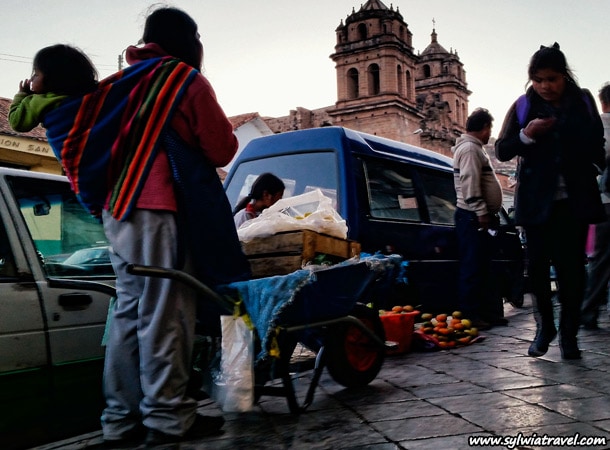
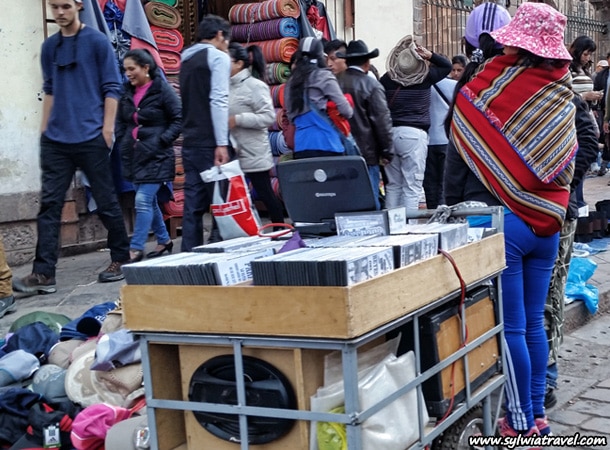
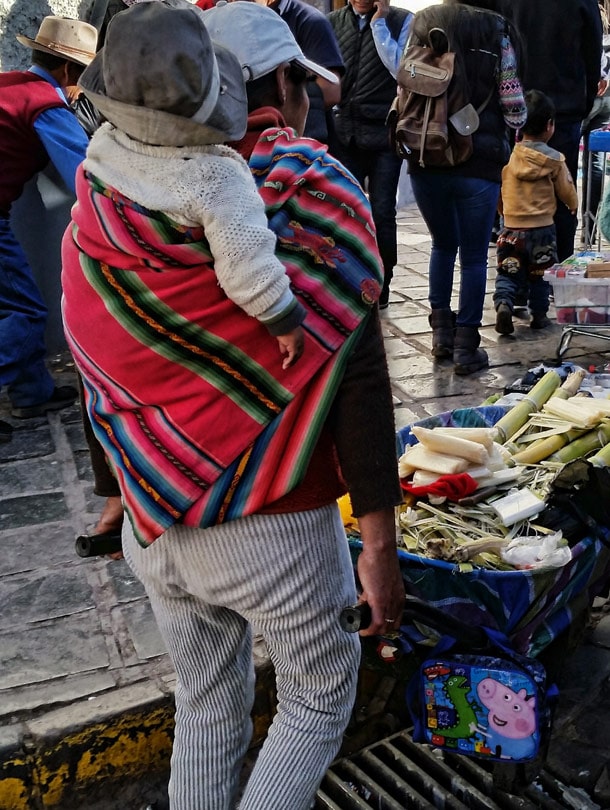
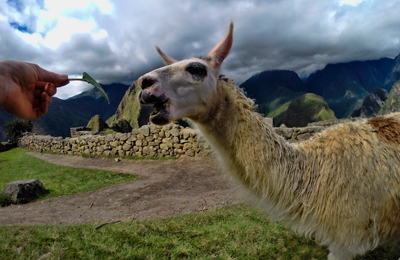




2 Comments
It is a sad thing to see, but this is their necessity, no? Well, perhaps one day it is possible that they send their children to school.
Very interesting article and I definatelly agree that children should have the time and freedome to play and learn. But never the less, I wanted to bring in another perspective. In some places in the western part of the world, and other places of the world aswell, parents work so much and children spend so much time in school or after-school programms, that they hardly ever see each other. Family members often don´t know each other very well because there is so much division between generation and everybody is busy with their own life and program. After I came back home after a long travels in South-America, I find it even more obvious then before I left, how busy people and how they never spend any time together. Even though I don´t condone children working, I think another point of view could be that people are at least spending more time together. Is that so harmfull?